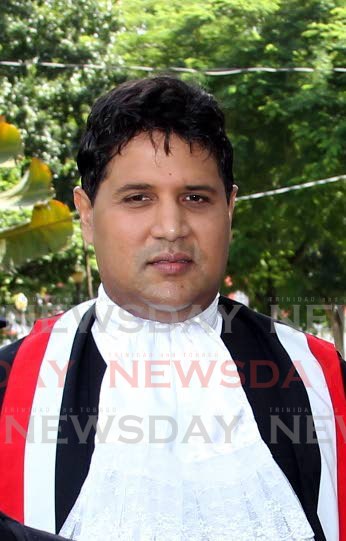Judge: All not well at Eastern Credit Union

A director of the Eastern Credit Union (ECU) has been partially successful in his challenge of the legality of the credit union’s last November’s election of a new board.
In November 2021, days before the election, Gerard Matthews filed a claim alleging abuse of process and defamation by the credit union’s board after he was suspended as director although he was later put up for election on November 13, 2021, when the Commissioner of Cooperative Development intervened and threatened to go to court for an injunction to stop the process.
Matthews sought several declarations, one of which was to nullify the results of the election of officers since he said he was not given time to successfully contest the election as he only learned on the day of the AGM, that his name was included on the list of nominees.
At the time, he said the late inclusion could “only be seen as a farce.” He also complained that he was unlawfully removed as a director and suffered reputational harm as a result.
In a ruling on Wednesday, Justice Frank Seepersad faulted the decision to preclude Matthews from serving as an officer in the ECU because he was a credit supervisor with another credit union.
It was argued by the ECU that the credit union’s bye-laws were designed to prevent elected members of another credit union from serving as an elected member with the ECU.
Testifying to that was the ECU’s president and chairman, Wayne Estrada.
Seepersad said the position adopted before the election to deem Matthews ineligible to serve as a director was “ill-conceived, tenuous and possibly driven by ulterior motives.”
As a result, he declared that the decision to deem him ineligible to serve as a director of the ECU because of his substantive job at the other credit union “was ill-conceived, tenuous, and possibly driven by ulterior motives.”
“It appears that the said position was likely fashioned by personality claes and driven by ‘political considerations’ to manipulate the eligibility and electability criteria for the election of officers so as to exclude the claimant,” the judge said.
He ordered the ECU to pay Matthews $8,272 for the loss of the director stipend and declared that his removal as a director was “patently flawed.”
“This type of 'gerrymandering' has to be rejected and has no place in the exercise of the co-operative’s electoral processes.
“Those who serve or wish to serve in elected capacities at the Eastern Credit Union need to ensure that the best interest of the members is prioritised above their ambition, insular agendas, and personal goals.
“The society’s process should not have been manipulated to conveniently oust the claimant and all officers of the Society must ensure that the objects and business of the Society are discharged with efficiency, transparency, honesty, integrity, and efficacy,” he said.
He said it was fortunate “the series of events which unfolded after the patently ill-advised move by the defendant,” ended with a rescission of the decision to dismiss Matthews as a director allowing him to stand as a candidate for the election.
In November, the credit union’s executive capitulated to the instructions of the commissioner to reverse a veto which led to three directors - one of whom was Matthews - being suspended and deemed ineligible.
However, Matthews was not successful in his complaint that the board used an old policy to conduct the November 2021 polls which led to an increase of eligible candidates for election to the board and statutory committee.
Seepersad said by reverting to old bye-laws, the ECU board did not act in breach when it decided not to implement a varied policy approved and ratified by the membership in December 2020
“Consequently, the court holds the view that the board did not act in breach of bye-laws when it elected not to implement the varied policy and proceeded to conduct the 47th AGM with the pre-existing electability criteria.”
Seepersad also said there was no basis for concluding that the AGM was flawed because of an illegal or irregular nomination process.
“The evidence also failed to convince the court that the actual election process severely prejudiced the claimant or that the manner in which same was conducted occasioned oppression to the claimant in any way.
“No evidence was adduced to establish that the reference to the claimant as a removed director in the defendant’s brochure which was circulated to members prior to the election, adversely impacted his chances for re-election.”
The judge further ruled that, on a balance of probabilities, he could not conclude that the ECU sought to “defame” Matthews nor was there evidence to support the assertion that his professional reputation was injured.
Seepersad again repeated similar comments he made last week on the need to review the ECU’s policies.
“The defendant plays a fundamental role in this Republic’s financial landscape. Fortunately, this society has not yet succumbed to this republic’s infestation of institutional dysfunction but evidently, all is not well at Eastern Credit Union.
“Urgent review of its governing mechanisms and processes is required and scrutiny by its membership and by the Commissioner of Co-operatives should be prioritised.
“A no tolerance approach to arbitrary or prejudicial decision making needs to be engaged and elected officials and the decisions effected by them should be reviewed with rigour and held up to the highest standards of transparency and accountability,” he said.


Comments
"Judge: All not well at Eastern Credit Union"